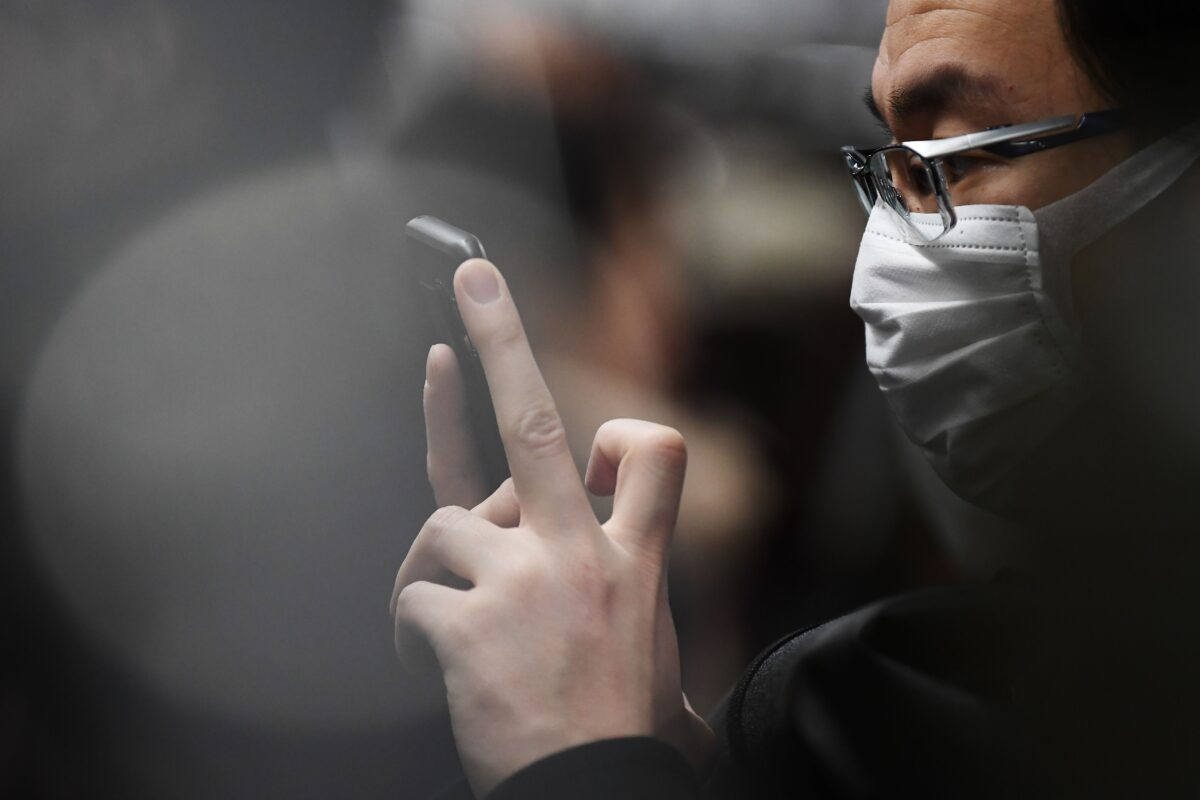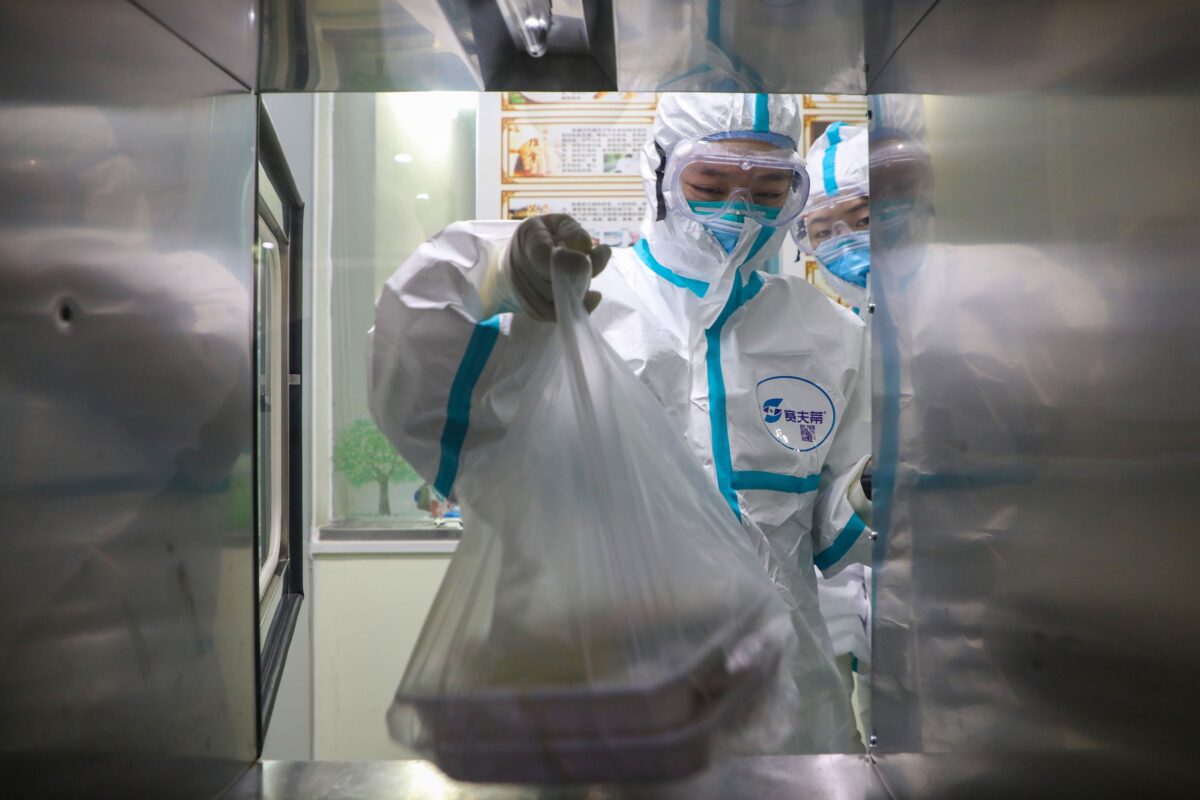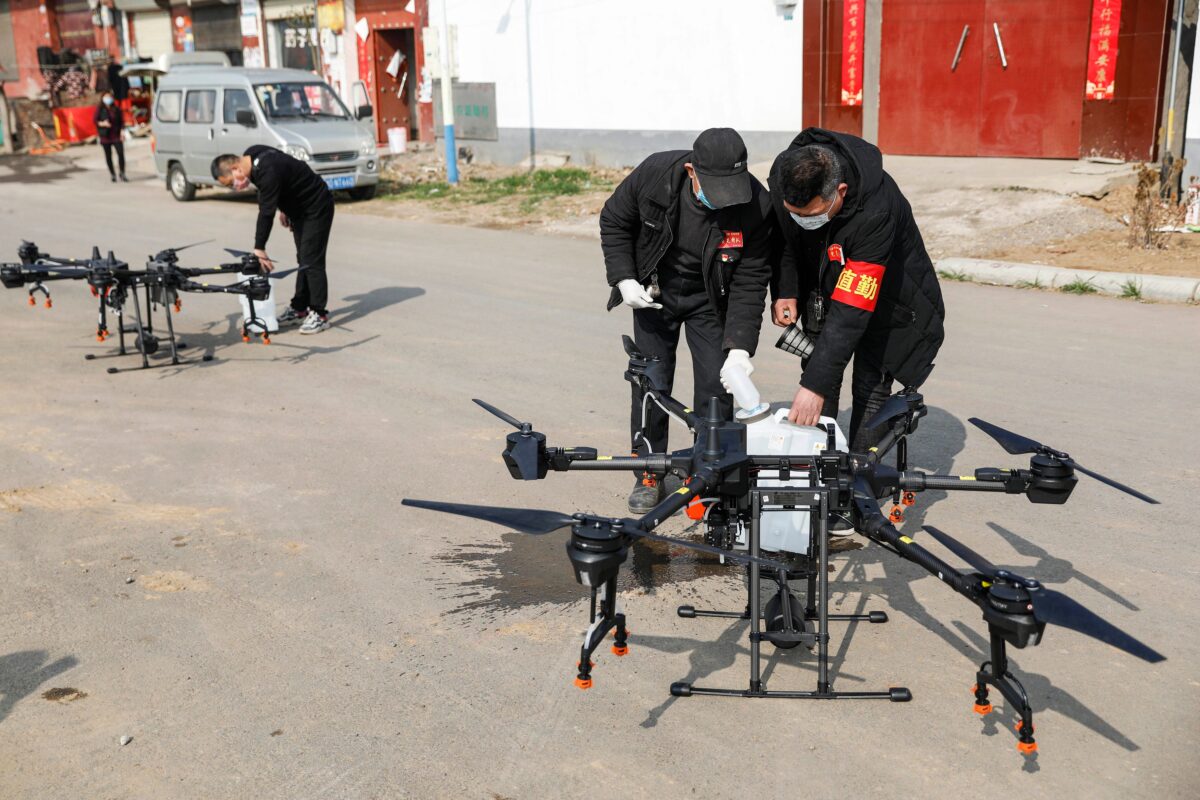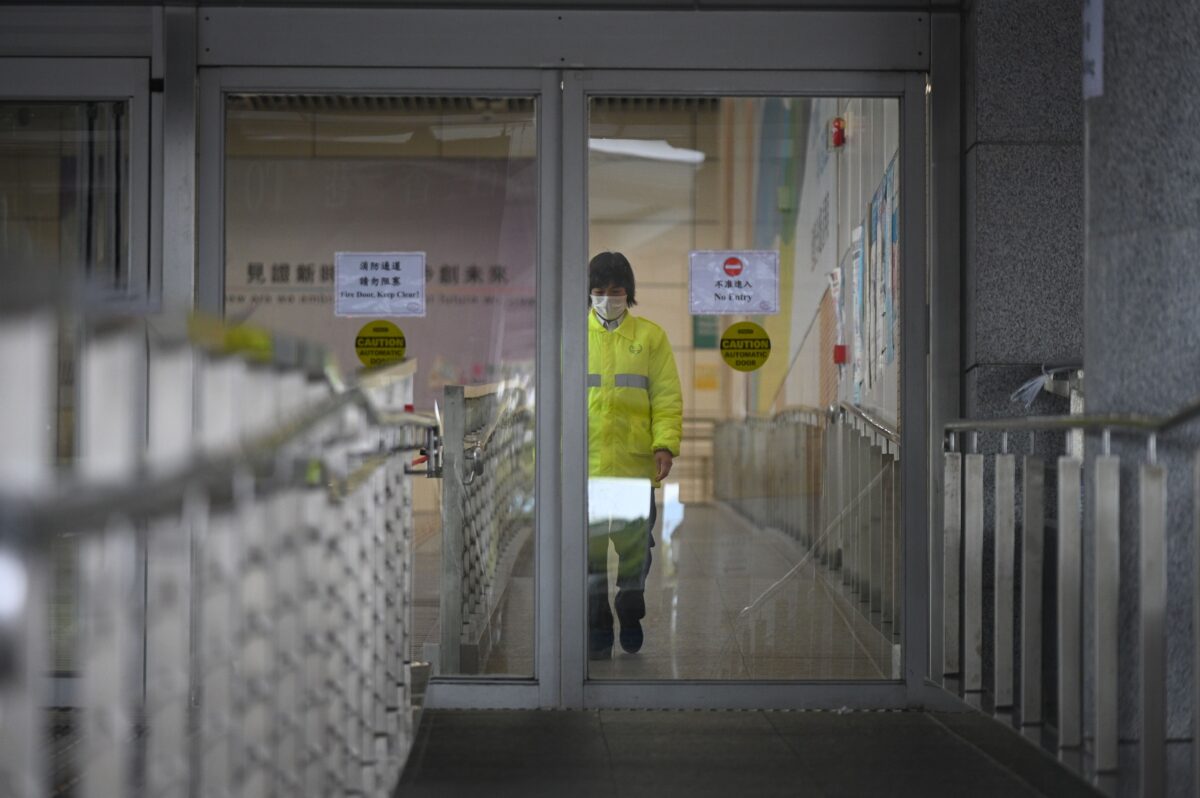Chinese health officials confirmed that the deadly novel coronavirus can be spread through the air, according to a Shanghai press conference on Feb. 8.
The virus, which causes a respiratory illness, has infected at least tens of thousands and stirred concern worldwide.
The officials said the virus can be spread through aerosol transmission, that is, when one inhales very tiny droplets in the air containing the virus. Severe acute respiratory syndrome (SARS), measles, and H5N1 avian influenza are also capable of spreading through aerosols, which can stay in the air for an extended period.
The UK government also recently classified the new virus as an “airborne high consequence infectious disease,” meaning that it can be spread through respiratory droplets, according to a government webpage about the virus.
The other two major transmission routes for the virus include direct contact—breathing in larger droplets at close range of an infected person who sneezes or coughs—and contact transmission, meaning a person can be infected by touching objects contaminated with droplets carrying the virus, and then touching the membranes of his mouth, nose, or eyes before washing his hands, Chinese officials said.
Depending on the environment, current scientific data suggests the coronavirus can survive on surfaces for several hours or up to five days, Jiang Rongmeng, an expert from China’s top health oversight agency, the National Health Commission (NHC), said in a recent press conference.
The findings came after Guangdong authorities discovered the nucleic acid of the virus on the doorknob of a patient’s home.
A number of Chinese cities, including the outbreak epicenter of Wuhan in Hubei Province; Xi’an in Shaanxi; Nanyang, Xuchang, and Kaifeng in Henan; Xingtai in Hebei; and Jiujiang in Guangdong, have deployed mist cannon trucks and street cleaning trucks to spray disinfectants on the streets in an effort to eliminate the virus from public spaces.
Shenzhen and Kunming in southern China were among the latest two locales to use drones for the disinfectant operation.
Zeng Qun, vice director for the Shanghai Civil Affairs Bureau, asked the public to cancel all social gatherings, open windows to ensure ventilation indoors, and regularly disinfect their homes. Zeng identified door handles, chairs, and toilet seat cushions as key areas that are susceptible to contamination and suggested using 75 percent ethanol solution or chlorine solution for sanitizing measures.
In a recent poll on the popular messaging platform WeChat, which drew 75,000 participants, around 62 percent indicated that they haven’t taken an elevator for more than a week, worrying that they could contract the virus by contacting the doorknob. For those who rode elevators, many chose to bring a pen, a toothpick, or a napkin, or wore gloves to avoid any direct contact.
Officials have also cautioned the family members of those infected to wear masks and keep a distance of at least one meter (3.2 ft.), as well as washing their hands immediately after touching anything exposed to the patient.
In a same-day news conference, China’s NHC announced that the virus will have a temporary name: novel coronavirus pneumonia, or NCP.
It remains uncertain whether the virus can spread through fecal contamination, a concern that arose after the feces of the first U.S. coronavirus patient tested positive to the virus.
Feng Luzhao, an infectious disease researcher with the Chinese Center for Disease Control and Prevention, said at the conference that it has also identified similar cases in several regions, which raised the question of whether the pathogens can spread through tainted food and water.
According to the NHC, the signs of infection include fever, fatigue, dry cough, and breathing difficulties, which can lead to pneumonia, kidney failure, and death.
However, some patients have reported atypical symptoms such as diarrhea, headache, palpitations, chest pain, eye inflammation, and muscle soreness.
From The Epoch Times
By Eva Fu





